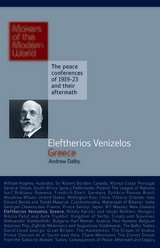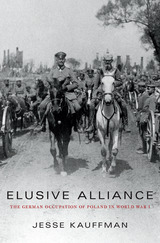3 start with E start with E


As World War I dragged on into 1915, German armies along the Western Front settled into stalemate with entrenched British and French forces. But in the East the picture was quite different. The Kaiser’s army routed the Russians, took possession of Polish territory, and attempted to create a Polish satellite state. Elusive Alliance delves into Germany’s three-year occupation of Poland and explains why its ambitious attempt at nation-building failed.
Dubbed the Imperial Government-General of Warsaw, Germany’s occupation regime was headed by veteran Prussian commander Hans Hartwig von Beseler. In his vision for Central Europe, Poland would become Germany’s permanent ally, culturally and politically autonomous but bound to the Fatherland in foreign policy matters. To win Polish support, Beseler spearheaded the creation of new institutions including a Polish-language university in Warsaw, reformed the school system, and established democratically elected municipal governments. For Beseler and other German strategists, a secure Poland was essential to ensuring Central Europe against a threatening tide of nationalism and revolution.
But as Jesse Kauffman shows, Beseler underestimated the resistance to his policies and the growing hostility to occupation as Germany plundered Polish resources to fuel its war effort. By 1918, with the war over, Poles achieved independence. Yet it would not be long before they faced a second, far more brutal German occupation at the hands of the Nazis.

READERS
Browse our collection.
PUBLISHERS
See BiblioVault's publisher services.
STUDENT SERVICES
Files for college accessibility offices.
UChicago Accessibility Resources
home | accessibility | search | about | contact us
BiblioVault ® 2001 - 2024
The University of Chicago Press









